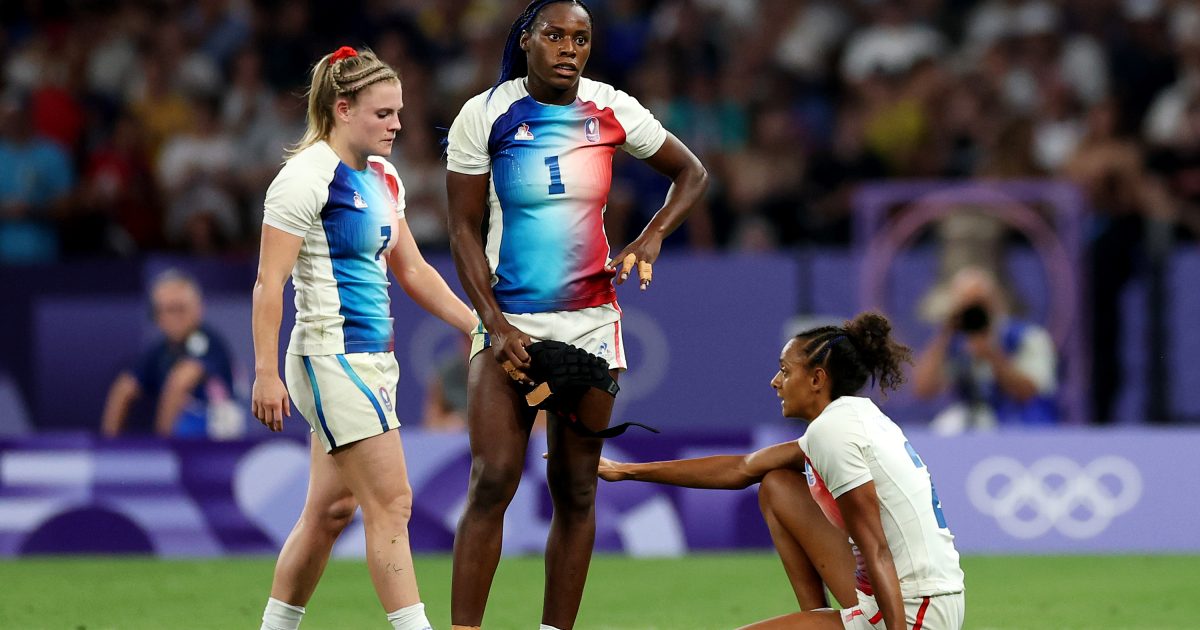Quatre septistes olympiques convoquées pour préparer le WXV

Gaëlle Mignot et David Ortiz, les deux sélectionneurs de l’équipe de France féminine, ont dévoilé ce mardi la liste des 34 joueuses qui participeront au stage de préparation au Women XV1, jusqu’à samedi à Capbreton (Landes).
Aux côtés des cadres de cette équipe, comme les soeurs Romane et Marine Ménager, Madoussou Fall, Pauline Bourdon Sansus ou la capitaine Manaé Feleu, le staff a fait appel à quatre joueuses qui ont disputé les Jeux Olympiques de Paris avec l’équipe de France de rugby à VII.
Le ?? ???????? sera à partir d’aujourd’hui et jusqu’à samedi en stage à Capbreton !
Voici les 34 joueuses convoquées :https://t.co/mugfUN25NF#XVdeFrance pic.twitter.com/MZPMXY90KL
— France Rugby (@FranceRugby) August 27, 2024
Il s’agit de Joanna Grisez, Caroline Drouin, Chloé Jacquet et Séraphine Okemba.
A l’issue de ce stage de cinq jours, les joueuses retenues auront encore près d’un mois avant leur première rencontre du WXV1, prévu le 29 septembre face au pays hôte, le Canada.
Les joueuses convoqués
Avants : Rose Bernadou, Romane Menager (Montpellier), Axelle Berthoumieu, Manon Bigot (Blagnac), Mailys Borak, Yllana Brosseau, Madoussou Fall, Assia Khalfaoui, Agathe Sochat (Stade Bordelais), Charlotte Escudero, Gaëlle Hermet, Kiara Zago (Stade Toulousain), Manaé Feleu, Teani Feleu, Emeline Gros, Ambre Mwayembe, Elisa Riffonneau (FC Grenoble Amazones), Hina Ikahehegi (Lille Villeneuve d’Ascq), Séraphine Okemba (LOU Rugby), Chloé Vauclin (Stade Rennais).
Trois-quarts : Cyrielle Banet, Marine Ménager (Montpellier), Océane Bordes, Pauline Bourdon Sansus, Lina Queyroi (Stade Toulousain), Émilie Boulard, Mélissande Llorens, Gabrielle Vernier (Blagnac), Nassira Konde, Joanna Grisez (Stade Bordelais), Alexandra Chambon (FC Grenoble Amazones), Caroline Drouin, Chloé Jacquet (Lyon OU), Lina Tuy (ASM Romagnat).




